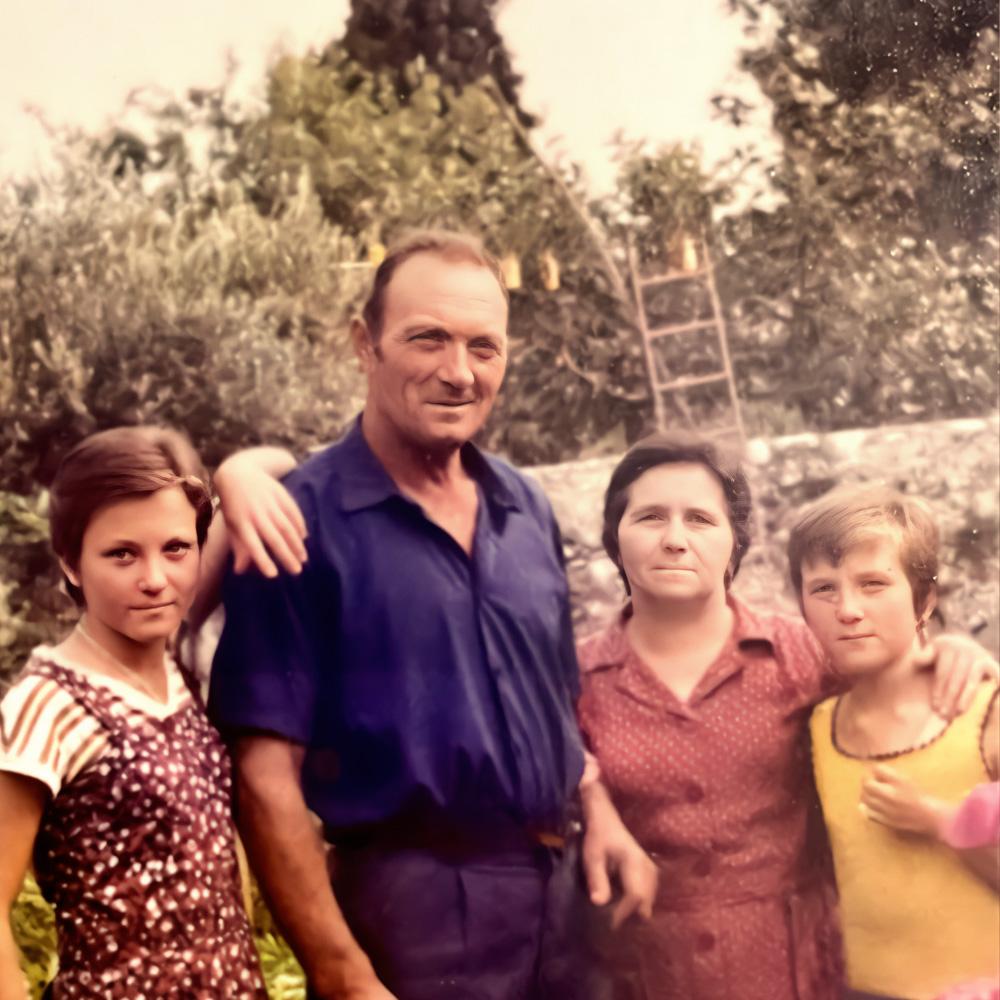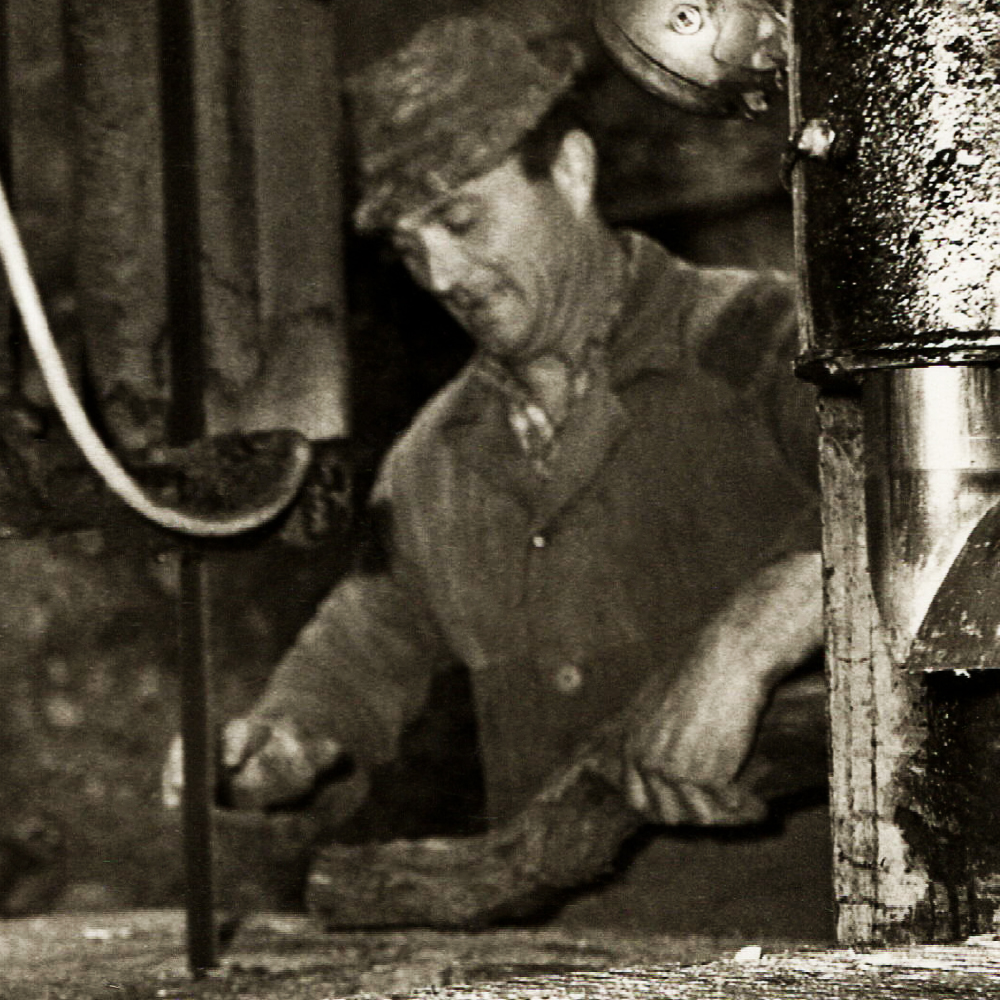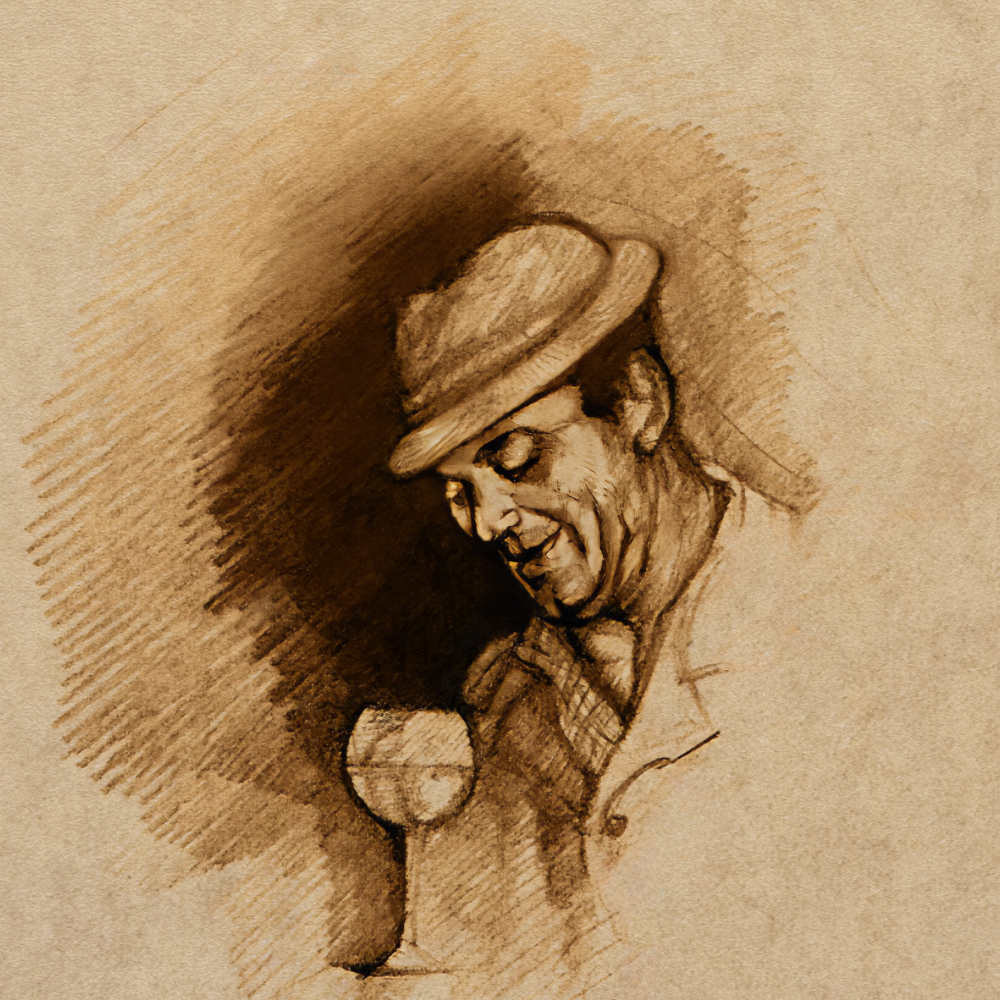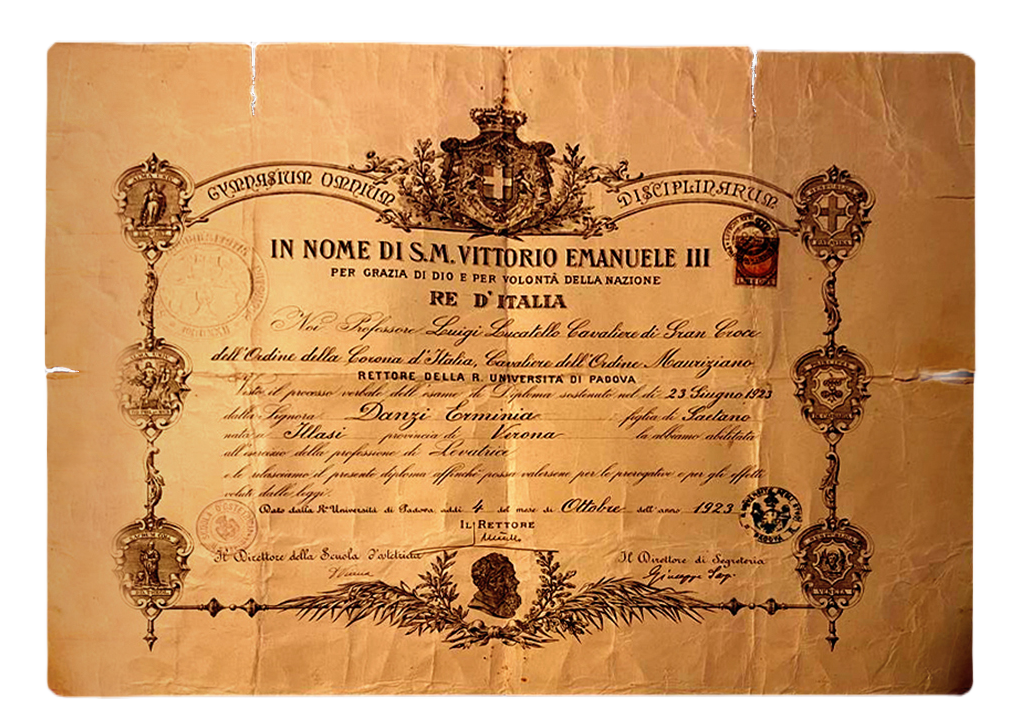






Certain stories write themselves; stories that need no overblown introductions or catchphrases.
Comaroto is one of those stories. It embodies the inexorable, evocative passing of time, delving into every nook
and cranny as testimony to the aromatic features and name of a very fine wine.
We looked for a name that would recall our grandparents and ancestors that would also commemorate their hard work and history, the times when they lived – times more authentic than ours – times when we worked hard with our heads down. The truly important family values are honesty and hard work; today, these values seem to be at odds with the times.
Winemaker and cellarmaster are impressive titles that set the standards on the fine wine market, yet the origins where all this poetry begins are often forgotten. Everything begins exclusively from the countryside, from knowing how to manage the vineyards, the culture of working and taking care of the land with your own hands. Today this fundamental aspect is delegated to workers and snubbed because it is seen merely as “production”. We forget, all too often, where ‘true’ production is set in motion.






Certain stories write themselves; stories that need no overblown introductions or catchphrases.
Comaroto is one of those stories. It embodies the inexorable, evocative passing of time, delving into every nook
and cranny as testimony to the aromatic features and name of a very fine wine.
We looked for a name that would recall our grandparents and ancestors that would also commemorate their hard work and history, the times when they lived – times more authentic than ours – times when we worked hard with our heads down. The truly important family values are honesty and hard work; today, these values seem to be at odds with the times.
Winemaker and cellarmaster are impressive titles that set the standards on the fine wine market, yet the origins where all this poetry begins are often forgotten. Everything begins exclusively from the countryside, from knowing how to manage the vineyards, the culture of working and taking care of the land with your own hands. Today this fundamental aspect is delegated to workers and snubbed because it is seen merely as “production”. We forget, all too often, where ‘true’ production is set in motion.
Marketing, image, sales… Comaroto is a name that goes beyond appearances, returns to our origins and our strong bond with the land. Comaroto begins with the raw material, without being old-fashioned. Comaroto recognizes authentic work – a step back to stand out in any context – by emphasising the primary part of the process. Amarone and Valpolicella Comaroto are the result of authenticity, ethics and history. The name Comaroto goes back to its roots, to the strong bond with Ernesto Dal Forno.
What heritage could be better than what we learned by working with our father Romano Dal Forno? Assuring meticulousness and discernment, as well as a raw material that has always made the difference thanks to well-tended nature. And once again, we mean authenticity, a truly ‘genuine’ product.
As adults, we recall things that should never be taken for granted: when we were youngsters on the farm the whole family did everything by hand. After dinner, we worked with bottles, corks, capsules, labels and cartons… there were no impositions, everything happened naturally, in a way that only people who have experienced it can understand. Unique and engaging sensory experiences, images, sounds, words and scents captured from the past that we can review in a more contemporary light. We had potatoes and cheese for dinner around the wood stove. There was school in the morning but it was a party because we later might have pressed grapes until one in the morning! We have no memories of things imposed on us as children because working the winepress, for example, was something enjoyable and carefree; children neither feel nor experience the responsibilities and pressures of adulthood. Yet, as children, we learnt a method of work, ‘the only’ method of work, with extraordinary naturalness.
‘Something we should hand down to our own children.’
Marketing, image, sales… Comaroto is a name that goes beyond appearances, returns to our origins and our strong bond with the land. Comaroto begins with the raw material, without being old-fashioned. Comaroto recognizes authentic work – a step back to stand out in any context – by emphasising the primary part of the process. Amarone and Valpolicella Comaroto are the result of authenticity, ethics and history. The name Comaroto goes back to its roots, to the strong bond with Ernesto Dal Forno.
What heritage could be better than what we learned by working with our father Romano Dal Forno? Assuring meticulousness and discernment, as well as a raw material that has always made the difference thanks to well-tended nature. And once again, we mean authenticity, a truly ‘genuine’ product.
As adults, we recall things that should never be taken for granted: when we were youngsters on the farm the whole family did everything by hand. After dinner, we worked with bottles, corks, capsules, labels and cartons… there were no impositions, everything happened naturally, in a way that only people who have experienced it can understand. Unique and engaging sensory experiences, images, sounds, words and scents captured from the past that we can review in a more contemporary light. We had potatoes and cheese for dinner around the wood stove. There was school in the morning but it was a party because we later might have pressed grapes until one in the morning! We have no memories of things imposed on us as children because working the winepress, for example, was something enjoyable and carefree; children neither feel nor experience the responsibilities and pressures of adulthood. Yet, as children, we learnt a method of work, ‘the only’ method of work, with extraordinary naturalness.
‘Something we should hand down to our own children.’


"Comaroto became grandfather Ernesto's nickname."
In the early twentieth century – on 23 June 1923 to be precise – the King of Italy, Vittorio Emanuele III, awarded Erminia Danzi – Ernesto Dal Forno’s mother – a diploma to practice as a midwife – a role commonly known in the local dialect as ‘Comare’.